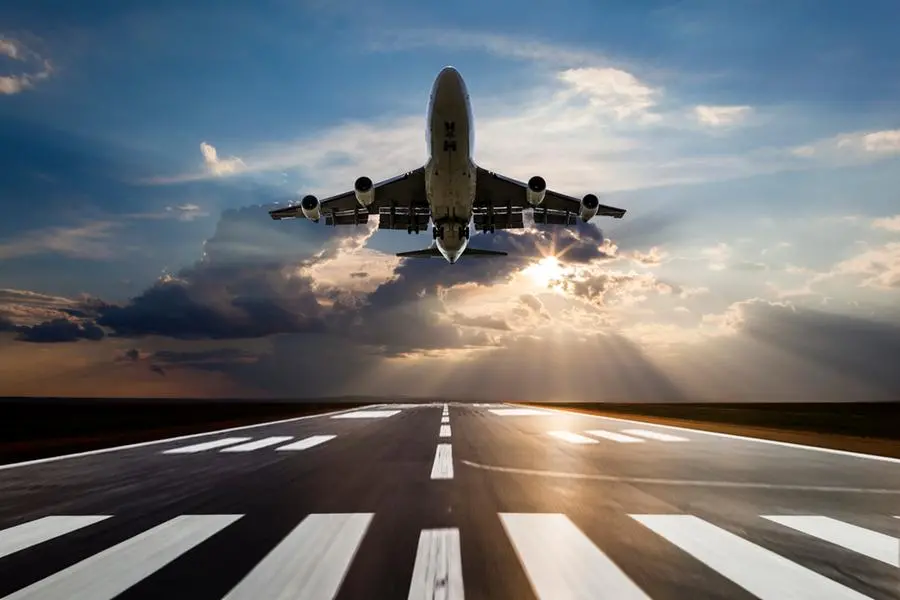PHOTO
MONTREAL: The International Air Transport Association (IATA) announced an expected strengthening of airline industry profitability in an upgrade of its outlook for 2023.
Airline industry net profits are expected to reach US$9.8 billion in 2023 (1.2 percent net profit margin) which is more than double the previous forecast of US$4.7 billion (December 2022).
Airline industry operating profits are expected to reach US$22.4 billion in 2023, much improved over the December forecast of a US$3.2 billion operating profit. It is also more than double the US$10.1 billion operating profit estimated for 2022.
Some 4.35 billion people are expected to travel in 2023, which is closing in on the 4.54 billion who flew in 2019.
Cargo volumes are expected to be 57.8 million tonnes, which has slipped below the 61.5 million tonnes carried in 2019 with a sharp slowing of international trade volumes. Cargo revenues are expected to be US$142.3 billion. While that is down sharply from US$210 billion in 2021 and US$207 billion in 2022, it is well above the US$100 billion earned in 2019.
Total revenues are expected to grow 9.7 percent year over year to US$803 billion. This is the first time that industry revenues will top the US$800 billion mark since 2019 (US$838 billion). Expense growth is expected to be contained to an 8.1 percent annual increase.
Passenger revenues are expected to reach US$546 billion (+27 percent on 2022, -10 percent on 2019). With COVID-19 restrictions now removed in all major markets, the industry is expected to reach 87.8 percent of 2019 levels of revenue passenger kilometers (RPKs) for the year with strengthening passenger traffic as the year progresses. The high demand for travel in many markets is keeping yields strong with a modest 1.1 percent decline expected in 2023 compared to 2022 levels (following increases of 9.8 percent in 2022 and 3.7 percent in 2021).
Expenses are expected to grow to US$781 billion (+8.1 percent on 2022 and -1.8 percent on 2019).
Jet fuel costs are expected to average US$98.5/barrel in 2023 for a total fuel bill of US$215 billion. That is cheaper than the US$111.9 / barrel previously expected (December 2022) and the average cost of US$135.6 experienced in 2022.
While the global airline industry is expected to return to profitability in 2023, financial performance across regions remains diverse. The positive news is that industry financials are improving in all regions from the COVID-related depths of 2020, although not all regions are expected to deliver a profit this year.
“Airline financial performance in 2023 is beating expectations. Stronger profitability is supported by several positive developments. China lifted COVID-19 restrictions earlier in the year than anticipated. Cargo revenues remain above pre-pandemic levels even though volumes have not. And, on the cost side, there is some relief. Jet fuel prices, although still high, have moderated over the first half of the year,” said Willie Walsh, IATA’s Director-General.
The return to net profitability, even with a 1.2 percent net profit margin, is a major achievement. First, it was achieved at a time of significant economic uncertainties. And second, it follows the deepest losses in aviation’s history (US$183.3 billion of net losses for 2020-2022 (inclusive) for an average net profit margin of -11.3 percent over that period). It should be noted that the airline industry entered the COVID-19 crisis at the end of a historic profit streak that saw an average net profit margin of 4.2 percent for the 2015-2019 period.
“Economic uncertainties have not dampened the desire to travel, even as ticket prices absorbed elevated fuel costs. After deep COVID-19 losses, even a net profit margin of 1.2 percent is something to celebrate! But with airlines just making US$2.25 per passenger on average, repairing damaged balance sheets and providing investors with sustainable returns on their capital will continue to be a challenge for many airlines,” said Walsh.





















